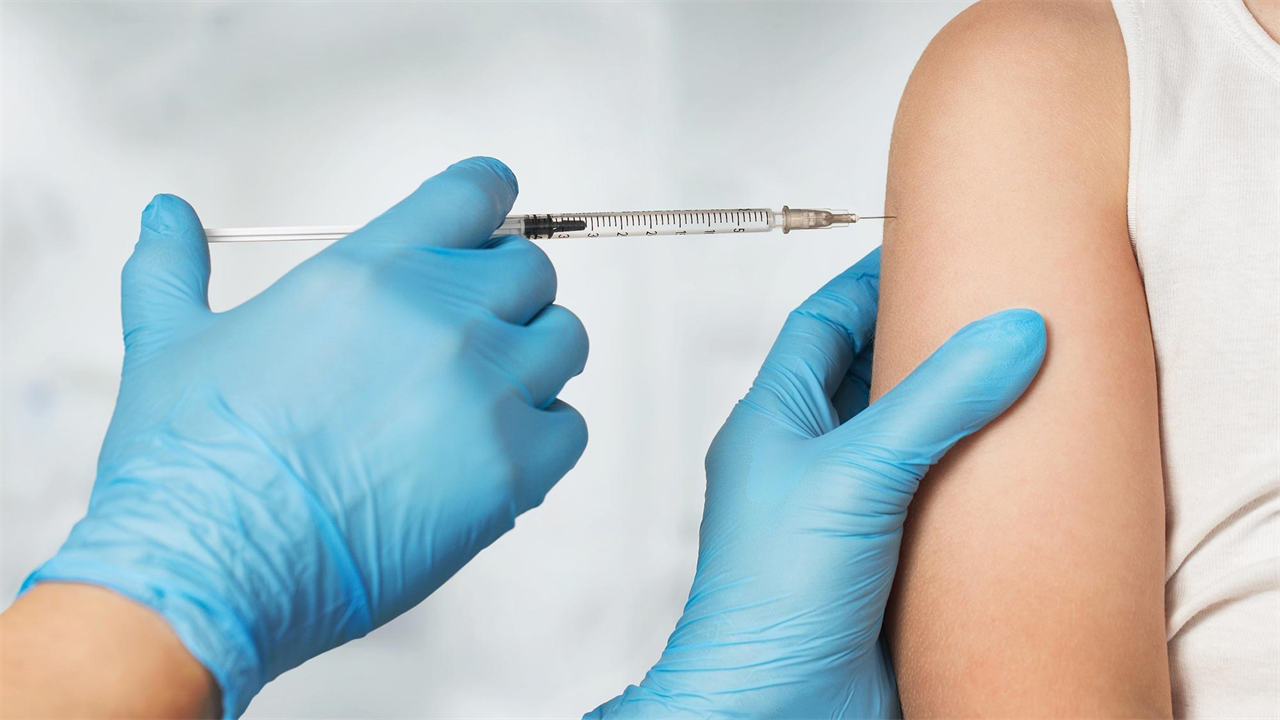Should My Child Get the COVID-19 Vaccine?
0 View
Share this Video
- Publish Date:
- 21 May, 2021
- Category:
- Covid
- Video License
- Standard License
- Imported From:
- Youtube
Tags

Vaccination is one way in which we can help children in personal activities again.
The Food and Drug Administration extended the emergency use authorization of the Pfizer-BioNTech COVID-19 vaccine to adolescents 12 to 15 years of age on May 10, 2021. their advisory group meeting on May 12. The American Academy of Pediatrics also supports this decision.
Dr. Debbie-Ann Shirley is an associate professor of pediatrics at the University of Virginia specializing in childhood infectious diseases. Here she addresses some of the concerns parents may have about their teen or preteen getting the COVID-19 vaccine.
1. Does the vaccine work in adolescents?
Yes, recently released data from Pfizer-BioNTech shows that the COVID-19 vaccine appears to work very well in this age group. The COVID-19 vaccine has been shown to be 100% effective in preventing symptomatic COVID-19 in an ongoing clinical trial in children in the US aged 12 to 15 years. Adolescents made high levels of antibodies in response to the vaccine, and their immune response was as strong as that seen in older teens and young adults aged 16-25 years.
2. How do I know if the vaccine is safe for my child?
So far, the COVID-19 vaccine appears to be safe and well tolerated by adolescents. All COVID-19 vaccines that can be used in the US have undergone rigorous study, but we don’t want to assume that children are small adults. That is why it is so important to study these vaccines in children just as carefully before health authorities could recommend their use. Ongoing studies will continue to closely monitor vaccinated children, and robust safety monitoring will help quickly identify rare or unexpected problems if they arise.
The Pfizer-BioNTech COVID-19 vaccine has been shown to be 100% effective in preventing symptomatic COVID-19 in children 12 to 15 years of age.
3. I thought children were at low risk – should they still get the vaccine?
Currently, children represent nearly a quarter of all new reported weekly COVID-19 cases in the U.S. While serious illness from COVID-19 is rare in children, it does occur – thousands of children have been hospitalized and at least 351 children have died of COVID-19 in the US Some children who become seriously ill from COVID-19 may have underlying health problems, but not all. Vaccination helps protect children from developing serious illness.
In addition, since adolescents can transmit COVID-19 to others, vaccinating children can prove to be an important part of safely returning to normal activities of life, including going to school in person, participating in team sports, and spending time with friends. . A large study of school-age children found that children in full or partial virtual school reported lower levels of physical activity, less personal time to socialize with friends, and had worse mental or emotional health compared to children who received full face-to-face education. Children are experiencing an unprecedented increase in indirect health and educational consequences associated with the pandemic, and we must find ways to help them return to normal lives quickly and safely. Vaccination is one of them.
4. What side effects can I expect for my child?
Non-serious side effects may occur after vaccination. The most commonly reported adverse reactions were pain and swelling at the injection site. Other common side effects are fatigue and headaches. As in young adults, some adolescents have had fever, chills, muscle pain, and joint pain, which may be more common after the second dose. However, these effects are short-lived and usually disappear within one to two days.
Some young people may pass out when they receive an injection. If this is a concern for your child, you should inform the vaccine administration site in advance – your child can receive the vaccine while sitting or lying down to avoid injuries from falls.
Children represent nearly a quarter of all new reported weekly COVID-19 cases in the US.
5. Have any serious reactions occurred in children?
No serious adverse events related to vaccination were reported in the Pfizer-BioNTech clinical study. Serious allergic reactions have been reported rarely in older people. Anyone with known severe or immediate allergy to the vaccine or any ingredients contained in the vaccine should not receive the vaccine. If your child has a history of severe allergic reactions or any form of immediate allergic reaction to a vaccine or injectable therapy, you should notify the vaccine site administrator so that your child is treated for at least 30 minutes after receiving the vaccine. can be controlled.
Parents should speak with a trusted health care provider or allergist if they have specific questions about the possibility of an allergic reaction in their child.
6. When will a COVID-19 vaccine be approved for children under 12 years old?
COVID-19 vaccine manufacturers have started or are planning to test COVID-19 vaccines in younger children. As more information becomes available, the authorized age recommendations may change. Children aged 2-11 may be eligible as early as the end of this year.
7. If I have been vaccinated but my child is not, can I still give them the virus?
The COVID-19 vaccines do not contain live COVID-19 virus and thus cannot cause COVID-19. Getting vaccinated can protect both you and your children from COVID-19. Studies have shown that vaccinated pregnant and nursing mothers can transmit protective immunity to their young children through the placenta and into breast milk – another benefit of vaccination.
Although researchers are still learning how well the vaccine can help prevent spread, vaccination is still an important way to limit contamination of people who are not yet eligible for the vaccine, such as younger children.
Written by Debbie-Ann Shirley, Associate Professor of Pediatrics, University of Virginia.
Originally published on The Conversation.










